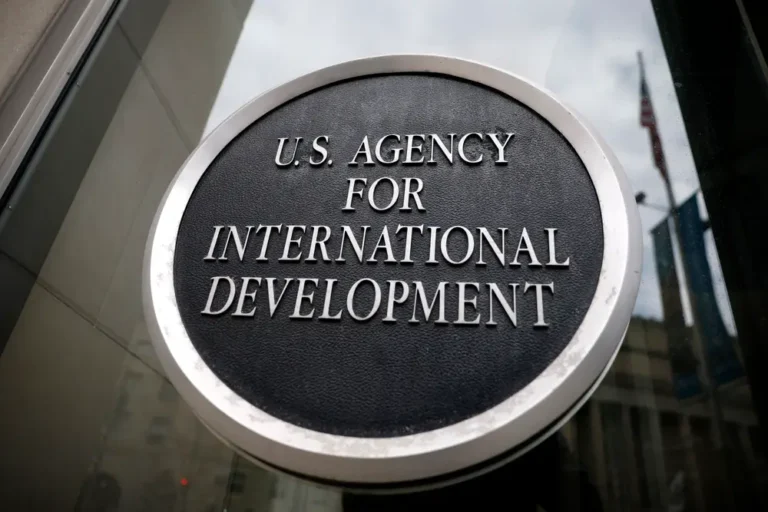A migrant family’s odyssey: 7,100 miles from Venezuela seeking new life in San Jose

A long and perilous journey in search of a better life
They walked, hitchhiked, took buses and boats, and even snuck onto a freight train. They traveled through nine countries in nine months, beginning in January when they fled their home in Venezuela and covering more than 7,100 miles before arriving in San Jose last month, a city where they knew no one but were told they might find help.
They slept on cardboard mats on the streets or in transit station tents, and they worked odd jobs for quick cash. They fought off robbers who threw rocks and bottles at their Mexican train and slogged through a Colombian jungle, passing the bodies of fallen migrants.
As if the journey hadn’t been difficult enough for Keila and her husband, Keiner, both 31, the couple made the unthinkable journey to America with their three young daughters — Sophia, 10, Thailyn, 6, and Sinay, 5.
When they and seven others arrived in San Jose on September 30 to everyone’s surprise, government officials and nonprofit organizations that came to their aid mistook the group for the Bay Area’s first busload of Latin American migrants sent by Republican governors to “sanctuary states” like California as a political protest over immigration policy. But, as it turns out, their story is not the same.
Private supporters working to help migrants resettle in the United States funded the bus trip to San Jose. But, like so many other families before them, Keila and Keiner have ended up in the United States with an uncertain future that is far beyond their control, much like America’s ongoing immigration debate.
In an exclusive interview with the Bay Area News Group, Keila recounted her family’s ordeal at a San Jose motel where her family is staying while local officials and community groups try to help them find work and housing and apply for asylum. They requested that their faces not be shown, that their last names not be published, and that their location not be revealed for fear of deportation. Though much of her account could not be independently verified, she did share cell phone images of their journey taken along the way.
The family is part of a new wave of Central and South Americans who have arrived at the southern border in recent months. U.S. Customs and Border Protection has reported a nearly fivefold increase in illegal border crossing encounters along the Mexican border, from 458,000 in 2020 to more than 2.2 million so far in 2023, spurred in part by the lifting of COVID-19 pandemic migration restrictions.
Most terrifying for Keila, she said, was the prospect of falling victim to gangsters or the unpredictable tropical weather as they slogged 60 miles through the wilderness on their way into Panama.
“The jungle was the most difficult thing for me,” Keila told a bilingual photojournalist, “because I was afraid they were going to kill us, rape us, or a river would overflow (and drown us).”
As difficult as their journey had been, Keila and her husband felt their family could no longer remain in Venezuela under President Nicolas Maduro’s oppressive socialist regime, whose political philosophy she described as “you’re either with me or you die.”
Last month, the UN Human Rights Office reported that “gross human rights violations continue to occur in Venezuela” in order to silence government critics, ranging from threats, surveillance, and harassment to extrajudicial executions. According to an interagency response network, more than 7.7 million Venezuelans have fled the country, and more than 1.1 million, including 371,000 in the United States, have pending asylum requests.
Keila and her husband “protested for our rights,” she said, but “we were threatened that if we protested for our rights in our country, the police would come and beat us, put us in prison, beat us, or kill us.” We decided to leave because of the abuse they were inflicting on us there, including threats and death threats.”
They set their sights on the United States from their home in Venezuela’s capital of Caracas, fearing that if they tried to settle in other countries along the way, they would have difficulty finding work and would be victimized by corrupt government officials or drug cartels. But they didn’t have enough money or other assets to cover the costs of such a trip.
To avoid detection by authorities, they hitchhiked in cars and trucks on their way to neighboring Colombia, ducking low in the seats so they wouldn’t be seen. They would meet up with others on the same journey there.
“Sometimes we had to ask for food because we didn’t have anything to eat or money,” said Keila. “We worked cleaning the windows of cars, to be able to continue moving forward.”
They traveled to Medellin, Colombia, and then to the most difficult part of the journey: the roadless, swampy, mountainous jungle wilderness of the Darien Gap into Panama.
In a canoe, they crossed a bay to a staging area where paid guides known as coyotes or mochileros — “backpackers” — led groups of migrants through the dense tropical rainforest. Those who paid the most got to walk closest to the guides to reduce their chances of getting lost, while others trailed behind, hoping not to fall behind and get lost.
The family paid the guides with a mobile phone, a hair iron, and money from the sale of their motorcycle, and joined a group of 500 migrants making their way through the jungle. But, with only a few iodine pills to treat the water, they sought out waterfalls to drink from and added packets of powdered sweetener for calories.
They passed the remains of travelers who had died along the way, as well as tents and packs abandoned by migrants forced to lighten their load. They ran out of food after the first day and had to hike for the rest of the day without eating. Keila stated that their girls were tired and beginning to wear down.
However, they came across an abandoned pack containing tortillas, tuna, and mayonnaise. “Thank God, we got a bag and ate,” said Keila.
The family walked through the jungle for about 60 miles in three days, sleeping in tents or on the ground. They took a canoe from the edge of the jungle to Panama City, then spent several weeks traveling through Panama, Costa Rica, Nicaragua, Honduras, and Guatemala before arriving in Tapachula, Mexico. They had to bribe officials in order to enter each country.
Mexican immigration authorities detained them in Tuxtla Gutierrez, a city 1,700 miles from the US border, for two weeks before busing them to Mexico City.
They walked to a dump site north of town, where they were able to board a freight train dubbed La Bestia, or “The Beast,” because so many migrants are injured or killed when they fall from cars.
The girls lay on a tent under a makeshift sunshade as the family rode an open-topped gondola car filled with coal. Still, there was danger ahead. A gang from a cartel stopped their train and attempted to rob the migrants on board.
“We had to grab rocks and bottles to be able to defend ourselves,” she said.
They took the train all the way to Ciudad Juarez, which is located across the border in Mexico from El Paso, Texas.
They crawled under barbed wire at the border to reach the Rio Grande, where they could wade through knee-deep, muddy water. They then proceeded to a border crossing and surrendered to border officials.
“I cried and I thanked God because all those terrible things that we had gone through had already been over,” she said. “I was a little more composed, but I had no idea what awaited us when we entered the immigration office.” We were detained and had no idea what was going on.”
The family was released from a detention center after several days, according to Keila. They were asked to sign some papers, but she stated that they had no idea what they meant.
Customs and Border Protection stated in a statement that “the border is not open to illegal migration,” and that those who illegally cross the border between ports of entry are apprehended, screened, and subjected to removal proceedings. They are then released to community organizations that provide services while they await hearings. According to Keila, they were given a hearing date in April.
Keila explained that the family ended up in San Jose by accident. First, a man who appeared to work at the detention center suggested they travel to the Bay Area city, where he claimed to have family and where they could find people who spoke Spanish and could assist them.
Then, while donating clothes at Sacred Heart, a mysterious woman overheard the family’s plight and offered to fly them to Denver, where she said an organization could put them on a bus to California. Although Keila is unaware of who assisted them, this is exactly what occurred.
When they arrived in San Jose, the office of the community group that had promised to assist them was closed. A woman in the neighborhood noticed them wandering the streets, looking lost, and connected them with the Amigos de Guadalupe community group, which has since placed them in a motel. A local Christian organization contacted them to help them find church services, and neighbors assisted Keila’s husband, Keiner, in finding seasonal work at construction sites.
“We know the incredible struggles these families have faced in order to find safety, and we know of their hope to find safety in the United States,” said Maritza Maldonado, founder of Amigos de Guadalupe. “They need our support — all of our support.”
According to Aundraya Martinez, manager of the county Office of Immigrant Relations, 300 Central American migrants have arrived in the county since early May. Her office collaborates with community organizations to ensure that families have food and shelter, that their children are enrolled in school, and that their parents are connected with immigration services to apply for asylum and work permits.
“We don’t just say we’re a welcoming county,” Martinez explained. “We are doing what we can to connect families with the resources that they need.”
Keila expressed concern about the family’s future as the girls roller-skated and scootered through the motel parking lot after school one day, munching on Goldfish crackers.
And she sobbed as she reflected on their long, arduous journey and the warm welcome they’ve received in the city they hope will become their new home.
“Thank you because, first and foremost, you are assisting us. Thank you, God.”
She is still concerned about what the future holds for her family.
“I’m afraid that I’ll be deported, that I won’t be able to be here,” she said, “but I’m praying to God that something good happens so I can stay here with my daughters, settle down, work.”






